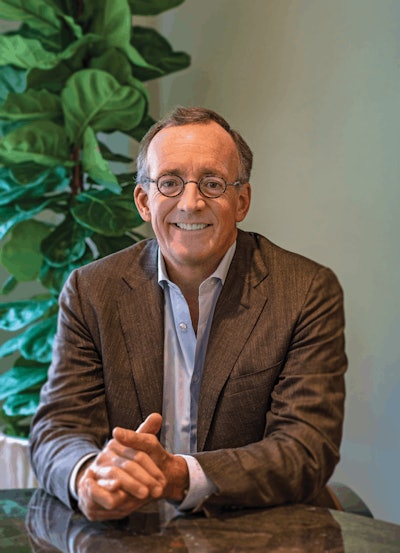
Multi-state, vertically integrated cannabis operator Parallel—run by the namesake and former CEO of the Wrigley Company William “Beau” Wrigley Jr.—recently made headlines after announcing the company would combine with special purpose acquisition company Ceres Acquisition Corp. in a $1.9 billion deal expected to close this summer. The merger would allow Parallel’s team to make a public offering while continuing to grow the business through M&A.
Wrigley outlines the benefits of the deal, Parallel’s clinical research partnership with the University of Pittsburgh, as well as why he believes there’s still “a ways to go” before cannabis can become a true consumer packaged goods (CPG) industry.
Cassie Neiden Tomaselli: How do you see cannabis evolving as a consumer packaged good?
Beau Wrigley: I spent many years in CPG. There are parallels, pun intended, to CPG with this, but I think it’s going to be a while before this really looks like a CPG business. Things like being able to sell outside of regulated stores is a big issue, and that doesn’t necessarily match up with your traditional CPG. A retail environment and what you do with a retail environment does match up with CPG, but you’ve got regulations on packaging and you can’t ship products across state borders. And then every state has a different regulatory environment, so you don’t have any consistency for mass marketing.
CNT: Parallel’s expansion strategy seems to be that you go very deep into the states that you’re in, instead of rapidly moving into multiple states. How do you think your focus will help Parallel over the long term?
BW: I feel strongly about this: Businesses are more successful when they’re focused. Now, you need to be focusing on the right things, and that’s what sometimes trips other businesses up. And I love our footprint. We are in high population markets with a relatively limited number of licenses on a comparable basis. We’re always looking at different markets, and we have applications in for licenses in a couple different states. But to go out and really add to that footprint, [whereas] we could do so much with our existing footprint—it’s like, why would you open up another front? I think it will serve us in terms of the depth of our customer base and the ability to build a strong business and be more competitive longer-term.
CNT: Could you share more details about the Ceres business combination announcement? How does this set you up for an upcoming public offering?
BW: They bring a network and a certain expertise in media and entertainment, which is highly relevant, not from a licensing standpoint necessarily, but more from the challenge that I think every company, whether it’s CPG or otherwise, faces today which is: How do you reach your consumers? And in our case, we have multi-generational consumers who are 21 to 80 [years old], and it’s all about really unlocking the code to how do you do that.
Obviously the transaction will put more cash in the piggy bank, so it allows us to keep investing in a whole host of meaningful initiatives that we have as a company. And the timing is right now because people are beginning to take a harder look at the fundamentals on what makes a good company in this business.
CNT: Can you talk a little more about the partnership with the University of Pittsburgh School of Medicine for clinical studies on sickle cell disease and why you’re focusing there?
BW: Sickle cell is the tip of the iceberg; we’ve got lots of things we want to do with [the University of Pittsburgh School of Medicine] over time. It’s a good place to start, primarily because [sickle cell is] something that afflicts a disproportionately high number of African Americans. And African Americans have been disadvantaged by the whole cannabis industry, and that’s something that has to be acknowledged. Maybe we can come back and really help that particular population with one of the first initiatives. But there will be other studies addressing different [ailments], as well.





















